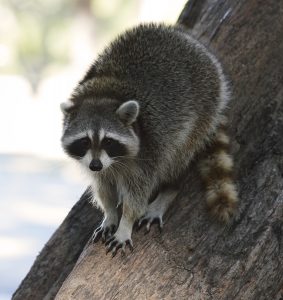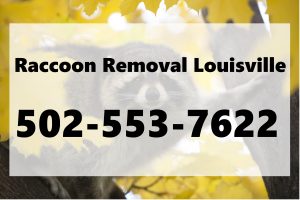Learn about the three different raccoon species and all their subspecies too! Raccoons are special and intelligent mammals that have a lot to offer when it comes to fun facts and nature.
The Common Raccoon, or Procyon Lotor, is also referred to as the Northern raccoon and is primarily found along the Southeastern borders of Canada, all the way through the Northern regions of the United States, and even down through the Gulf of Mexico. Northern raccoons are the most prevalent species found in North America, and retain the characteristic qualities that we all think about when we think about raccoons. They have the long, striped, bushy tails and the bandit-like mask that we all know so well, and the long claws and human-like paws too. They are highly intelligent mammals whose studies have shown they can remember solutions to tasks up to three years later! This is where the familiar phrase, “sly coon” comes from.Raccoon Species
There are only three species of raccoon, which includes the common raccoon, as well as, the Cozumel Island raccoon and Crab-Eating raccoon. These other two species are only native to the tropics and are rare. Aside from the three main species of raccoon, there are several subspecies found all across the world, from Europe to Japan, in Central America, the Caribbean, and more. Continue reading to learn more about raccoon subspecies.
Raccoon Subspecies
Some species of raccoon were thought to be separate and distinct, but are now classified as subspecies to other species of raccoon. For example, the now-extinct Barbados raccoon, the Guadeloupe raccoon, and the Tres Marias raccoon were thought to be their own species, but several studies later on proved they were simply subspecies to the common raccoon.
Since 2005, twenty two subspecies of raccoon have been formally recognized.
• Eastern Raccoon (P.I lotor)
• Florida Raccoon (P.I elucus)
• California Raccoon (P.I psora)
• Texas Raccoon (P.I fuscipes)
• Snake River Valley Raccoon (P.I excelsus)
• Mexican Plateau Raccoon (P.I hernandezii)
• Baja California Raccoon (P.I grinnelli)
• Kay Vaca Raccoon (P.I auspicatus)
• Upper Mississippi Valley Raccoon (P.I hirtus)
• Mississippi Delta Raccoon (P.I megalodous)
• Torch Key Raccoon (P.I incautus)
• Maria Madre Island Raccoon (P.I insularis)
• Saint Simon Island Raccoon (P.I litoreus)
• Ten Thousand Islands Raccoon (P.I marinus)
• Bahaman Raccoon (P.I maynardi)
• Pacific Northwest Raccoon (P.I pacificus)
• Colorado Desert Raccoon (P.I pallidus)
• Isthmian Raccoon (P.I pumilus)
• Short-Faced Raccoon (P.I simus)
• Vancouver Island Raccoon (P.I vancouverensis)
If you are experiencing a nuisance coon problem, contact a local and licensed animal control service right away. These special mammals should never be harmed or killed. A trusted animal removal company will trap them and relocate them to a faraway and safer habitat.


